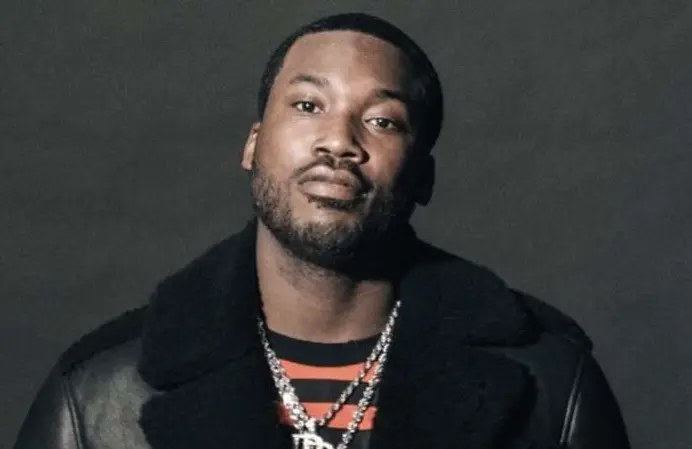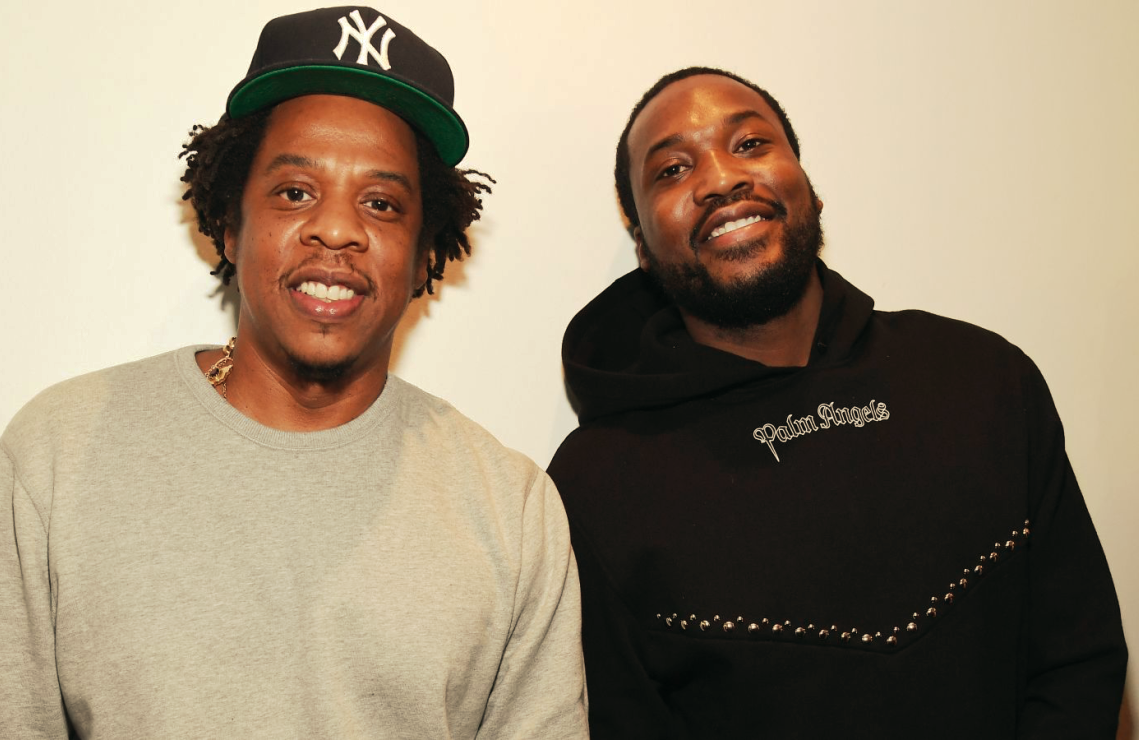The Depressingly Familiar Yet Hopeful Legal Odyssey of Meek Mill
-
 Meek Mill recalls his 11-year quest for justice in Amazon's Free Meek
Meek Mill recalls his 11-year quest for justice in Amazon's Free MeekFree Meek
Drops on Amazon August 9, 2019
Watch on AmazonIt’s depressing to think that the American criminal justice system got so out of hand while we were blithely watching TV shows about law and order. As the entertainment world made billions off our respect for cops, courts, and the rule of law, millions of promising young lives were sidetracked or destroyed in the name of being "tough on crime,” which often just meant keeping the system going, filling cells, keeping shareholders in corrections companies happy.
But a new generation has come along with cameras and mics, and they’ve been telling a different story. Ada DuVernay’s 13TH coolly explained how the amendment ending slavery in America was hijacked to re-enslave millions during the War on Drugs. Stephen Maing’s Crime + Punishment showed how the criminal justice system pumps billions into city coffers and encourages dirty police tactics. Kelly Louderbach’s The Confession Tapes powerfully documented the abuse of videotaped confessions to ruin innocent lives while giving prosecutors cover.
It would be even more depressing if these outstanding exposés accomplished nothing, but that’s a real risk. The problems they cast such a harsh light on are vast and deep, and the institutions have powerful friends in both politics and the media. And these were all produced for streaming TV, whose business model involves keeping you glued to your couch, not out in the world demanding change.
So I’m happy to report that the latest addition to this oeuvre, Free Meek, a five-part docuseries dropping Friday on Amazon Prime, left me feeling hopeful that maybe the times really are changing.
For the subject of Free Meek — Rihmeek Williams, aka Philadelphia hip-hop superstar Meek Mill — may be the criminal justice system’s worst nightmare. Like Malcolm X, Williams was radicalized in prison to see his case as part of a bigger injustice holding millions back, including many young men who look just like him.

He was just a 19-year-old in 2007 when he was arrested outside his cousin’s home and charged with weapons and drug violations. The police report showed that young Williams — who had not yet achieved fame as Meek Mill — had pulled a gun and pointed it at the officers. Somehow, no shots were fired.
“I got a gun, but I ain’t pointin’ no gun at a police officer,” Meek recalls later. A cop agrees: “The second he raised that weapon, he would’ve had one breath to live. ... They’d have aired him out. We’re talking closed casket, not open.”
But 2007 is years before Black Lives, and it will be years before anyone thinks to air out the police account of what happened that night.
And for the next decade and change, Meek Mill will be in the tender clutches of the criminal justice system. It takes seven months for his family to scrape together his bail. When it’s time for the trial, he draws a black female judge — “yeah, a black lady!” Meek recalls thinking — who gives him a light jail term, including time served, plus 10 years’ probation.
“When we heard 10 years’ probation,” says Nasheema Williams, Meek’s sister, “we thought she did him a favor.”
Instead, Meek’s Kafkaesque journey was just beginning. Probation was designed to supervise ex-cons on their return back to productive lives in society. But as we see in Free Meek, probation can be easily abused to keep people in the system, rotating in and out of jail.
Over the next nine years, that judge would haul Meek into her courtroom 26 times for “technical violations,” which is to say things that aren’t crimes, aren’t remotely crimes, but can get you sent back to jail, especially if that nice black lady judge turns out to have a weird obsession with you and your burgeoning rap career.
Things your dumb cousin in Oregon gets away with, like making a YouTube while high, or popping a wheelie on a public road, are excuses for the judge to extend Meek’s probation by several more years. Theoretically he could be in her clutches forever. He begins showing up at hearings wearing two pairs of socks and two pairs of underwear, just in case he’s ordered back to the clink.
Somehow along the way, he becomes a major recording artist. His first CD takes Philadelphia by storm while he’s serving time. A progression of super-producers — Charlie Mack, Rick Ross, Jay-Z — take him under their wing. He burns his travails into his music, feeling an urgency to make money and support his family before the imperious judge has him jailed again.
In time, Meek and his high-powered supporters can hire private investigators to uncover flaws in the 2007 incident that sucked him into the criminal justice system. He can draw top lawyers and media scrutiny to the judge’s high-handed ways. And that’s key. As he matures into a thoughtful, responsible young man, Meek realizes that there are a million men and women like him anonymously languishing in the system, and that the only way this story has a happy ending is if he uses his celebrity and connections to help dismantle a system that’s rotten to the core.

“A lot of people don’t understand what is going on, or believe it, until they see it,” Jay-Z says. “Meek is not the only one.”
Fact-based, fast-paced, and infuriating as all hell, Free Meek benefits from having the participation and financial backing of Jay-Z and his Roc Nation company; from the support of Meek’s tight-knit family that accompanies him every step of the way; and by having a fabulous explainer in Rolling Stone’investigative journalist Paul Solotaroff, who helped nationalize the Meek Mill story in 2017 and whose silver throat makes anything sound like butter (even “shit gets interesting”).
But in the long run, Meek’s greatest allies may actually have been the bad actors who needlessly prolonged his case and denied him justice. His tormentors allowed Meek’s story to grow to almost mythic proportions. During his last incarceration, the whole city seemed to embrace him. The Philadelphia Eagles made one of his songs their Super Bowl anthem.
Ultimately, though, what makes Free Meek uplifting is not the end of Meek Mill's personal odyssey — unbelievably his court case drags on, although the end is in sight — but the possibility that this once-anonymous Philly kid has incited a social movement that will result in real structural change. This year Meek Mill started a high-profile foundation with the lofty goal of liberating a million men and women from the criminal justice system. And now we have Free Meek, adding yet another powerful voice to this generation's collective demand to ending a system that has too often behaved criminally in the pursuit of justice.
Pressed for time? Episode 1 of Free Meek is a totally dispensable 33-minute overture that Amazon apparently insisted on because “five-part docuseries” sounds better than “four-part.” If you’ve read this review, you know the setup and can skip right to Episode 2.
Can’t get enough? If you’ve watched Free Meek and the other shows I mentioned above — 13TH, Crime + Punishment, and The Confession Tapes — try Abacus: Small Enough to Jail, a bizarre David-and-Goliath story about the only bank charged with a crime after the 2008 financial meltdown.
Aaron Barnhart has written about television since 1994, including 15 years as TV critic for the Kansas City Star.
TOPICS: Free Meek, Prime Video, 13th, The Confession Tapes, Crime + Punishment, Jay-Z, Meek Mill, Documentaries